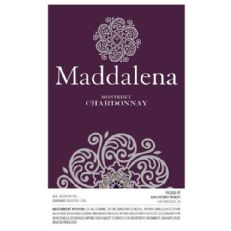Sign In Chef

By using our free meal planner (and the rest of spoonacular.com) you have to agree that you and only you are responsible for anything that happens to you because of something you have read on this site or have bought/cooked/eaten because of this site. After all, the only person who controls what you put in your mouth is you, right?
Spoonacular is a recipe search engine that sources recipes from across the web. We do our best to find recipes suitable for many diets — whether vegetarian, vegan, gluten free, dairy free, etc. — but we cannot guarantee that a recipe's ingredients are safe for your diet. Always read ingredient lists from the original source (follow the link from the "Instructions" field) in case an ingredient has been incorrectly extracted from the original source or has been labeled incorrectly in any way. Moreover, it is important that you always read the labels on every product you buy to see if the product could cause an allergic reaction or if it conflicts with your personal or religious beliefs. If you are still not sure after reading the label, contact the manufacturer.
We also attempt to estimate the cost and calculate the nutritional information for the recipes found on our site. Again, we cannot guarantee the accuracy of this information. Additionally, our nutrition visualizer that suggests that you limit sodium, sugar, etc., and get enough protein, vitamins, and minerals is not intended as medical advice. Similarly, our health tips are based on articles we have read from various sources across the web, and are not based on any medical training. The team behind spoonacular does not possess any medical qualifications and the information may be found to be incorrect or out of date based on future research. If you need help planning your diet or determining which foods (and recipes) are safe for you, contact a registered dietitian, allergist, or another medical professional.
Spoonacular is not responsible for any adverse effects or damages that occur because of your use of the website or any information it provides (e.g. after cooking/consuming a recipe on spoonacular.com or on any of the sites we link to, after reading information from articles or shared via social media, etc.)
×$5.16 per serving

13 likes

Ready in 45 minutes

Spoonacular Score: 84%
Crab Salad in Avocado Boats might be a good recipe to expand your main course recipe box. This recipe makes 2 servings with 414 calories, 23g of protein, and 31g of fat each. For $5.16 per serving, this recipe covers 27% of your daily requirements of vitamins and minerals. It is brought to you by spoonacular user jhudy. A mixture of onion, ground cumin, lump crab meat, and a handful of other ingredients are all it takes to make this recipe so delicious. It is a good option if you're following a gluten free, dairy free, whole 30, and pescatarian diet. From preparation to the plate, this recipe takes around 45 minutes. Similar recipes include Crab Salad in Avocado Boats, Crab Salad in Avocado Boats, and Crab Salad in Avocado Boats.
Crab works really well with Chardonnay, Riesling, and Pinot Grigio. Chilled crab tastes great with pinot grigio. Warm crab (especially with butter) can be matched with a buttery Chardonnay or a crisp fruity Riesling. You could try Maddalena Chardonnay. Reviewers quite like it with a 4.9 out of 5 star rating and a price of about 13 dollars per bottle.
 Barrel fermentation in French and American oak, malolactic fermentation, lees stirring, and sur lie aging develop this wine to its greatest potential. Maddalena Vineyard Chardonnay greets the nose with a potpourri of fruit-driven aromas, including citrus, guava, and orange peel. These aromas are complemented by a mineral element, described as "wet stones." Forward fruit is also revealed in the mouth, which is accompanied by good structure and a long, crisp finish.
Barrel fermentation in French and American oak, malolactic fermentation, lees stirring, and sur lie aging develop this wine to its greatest potential. Maddalena Vineyard Chardonnay greets the nose with a potpourri of fruit-driven aromas, including citrus, guava, and orange peel. These aromas are complemented by a mineral element, described as "wet stones." Forward fruit is also revealed in the mouth, which is accompanied by good structure and a long, crisp finish.
» Get this wine on Wine.com






















Read the detailed instructions on Foodista.com – The Cooking Encyclopedia Everyone Can Edit